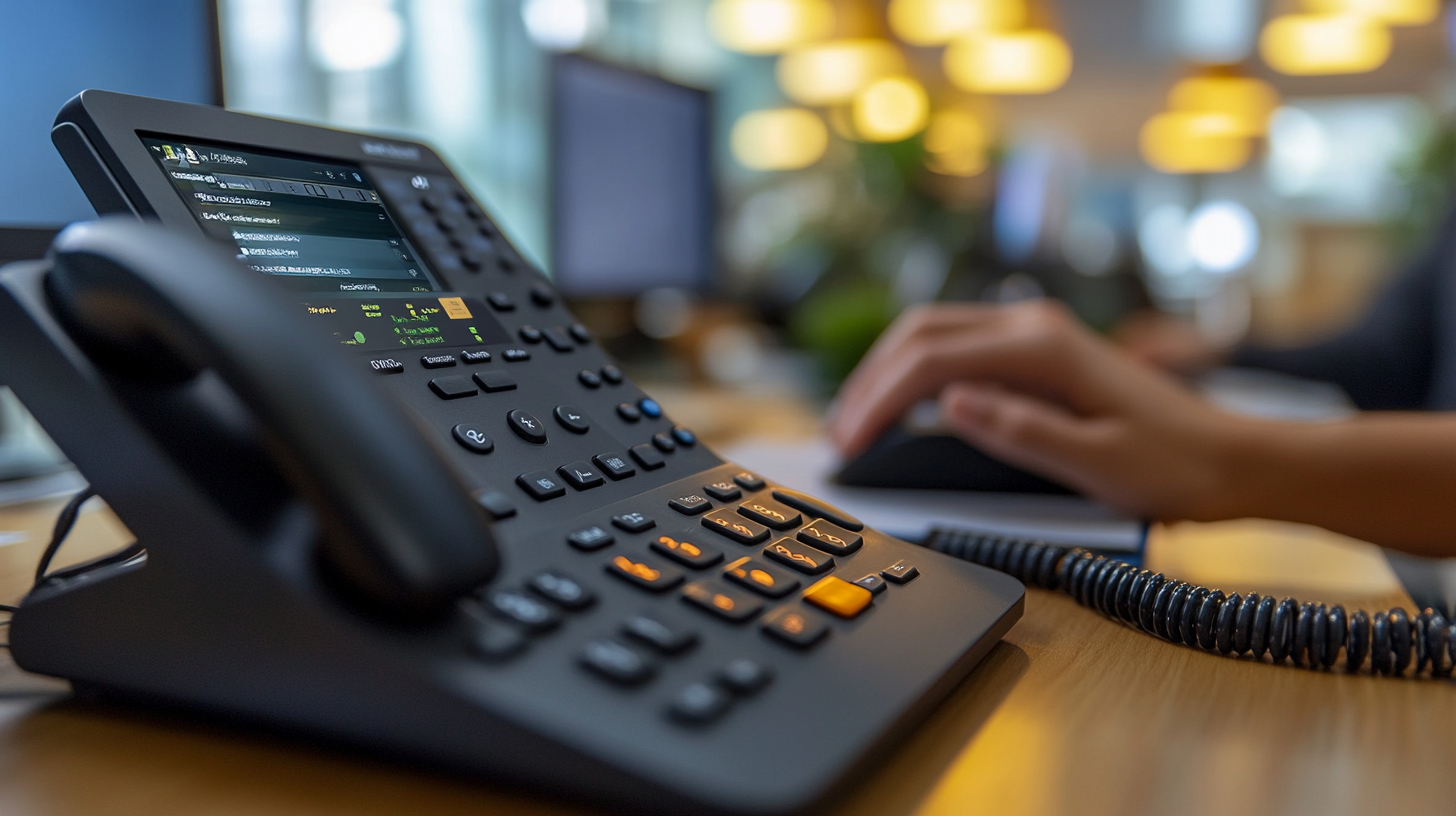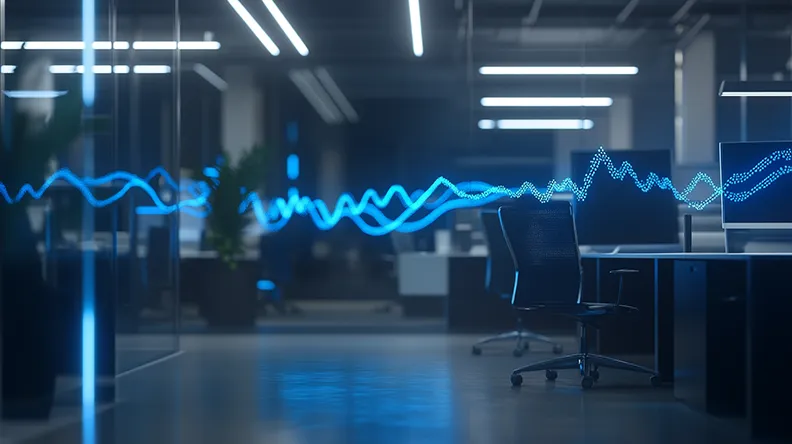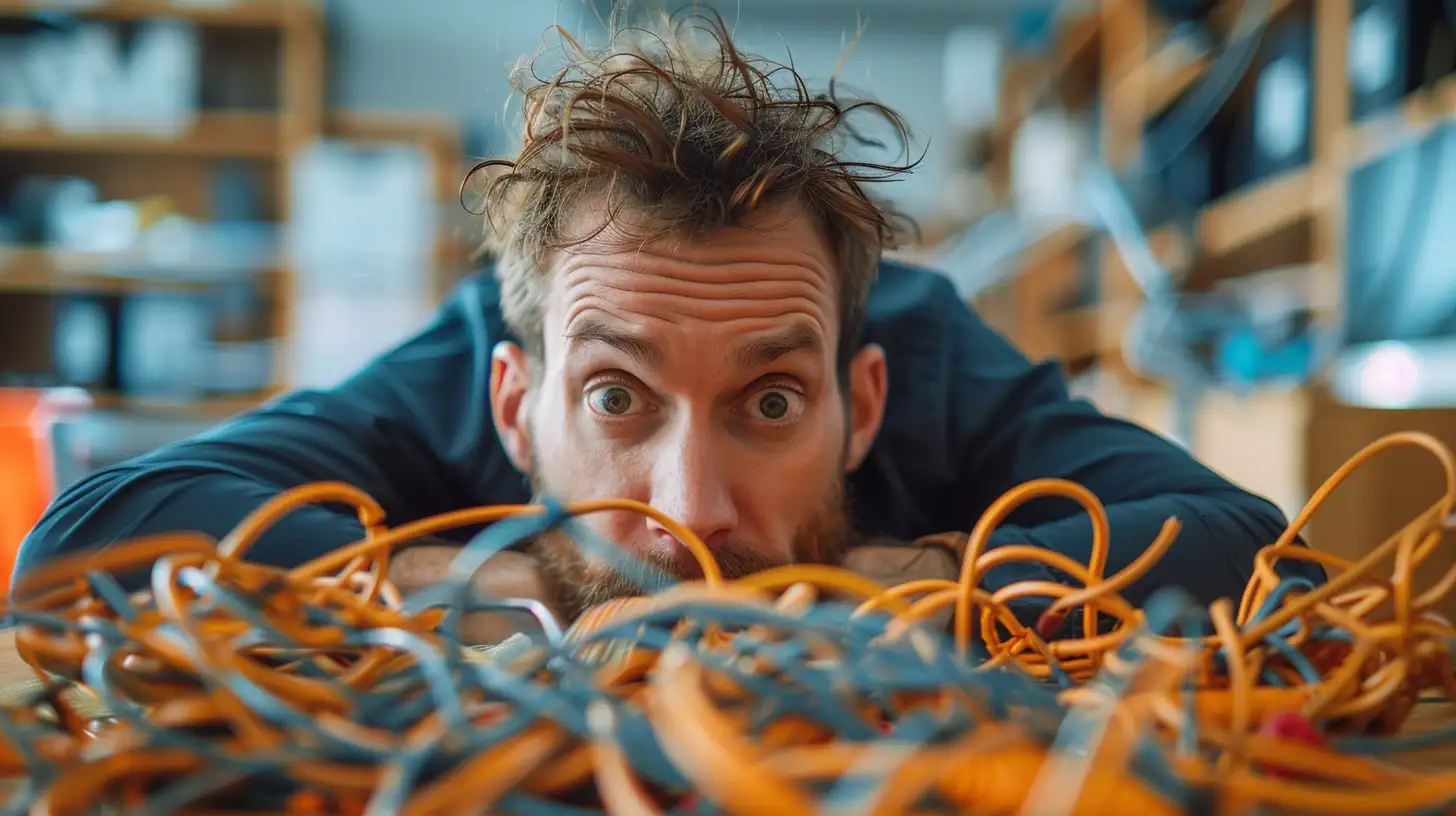As a remote worker, you’ve likely wondered about the privacy of your VoIP communications. It’s a valid concern, given the sensitive nature of many work-related conversations. You might be surprised to learn that modern VoIP systems offer robust security features that rival, and often surpass, traditional phone lines. From end-to-end encryption to advanced authentication methods, these technologies work tirelessly to keep your calls and data secure. But with cyber threats evolving constantly, is this enough to truly protect your privacy? The answer lies in understanding the layers of security that VoIP providers implement and how you can leverage them effectively.
Table of Contents
ToggleKey Takeaways
• End-to-end encryption protects call data from unauthorized access, ensuring confidentiality during transmission.
• Multi-factor authentication significantly reduces the risk of unauthorized access to VoIP systems.
• Compliance with regulations like GDPR and HIPAA ensures adherence to strict data protection standards.
• Regular security updates and patches from reputable VoIP providers combat emerging threats and vulnerabilities.
• Advanced features like encrypted call management tools and secure transmission protocols enhance overall privacy for remote workers.
Understanding VoIP Technology
VoIP technology harnesses the power of the internet to transmit voice calls, revolutionizing how remote workers communicate. This innovative system converts your voice into digital data packets, which are then sent over the internet to their destination. Unlike traditional phone lines, VoIP doesn’t rely on physical copper wires, making it more flexible and cost-effective.
One of the key VoIP benefits for remote workers is its ability to facilitate seamless communication regardless of location. You can make and receive calls from anywhere with an internet connection, using various devices such as smartphones, laptops, or dedicated VoIP phones. This versatility enhances remote collaboration, allowing teams to stay connected effortlessly.
VoIP also offers advanced features that traditional phone systems can’t match. These include video conferencing, instant messaging, and file sharing, all integrated into a single platform. Such capabilities streamline workflow and boost productivity for distributed teams.
Moreover, VoIP systems are scalable and easily adaptable to changing business needs. You can add or remove users, adjust features, and integrate with other business applications without significant infrastructure changes. This flexibility makes VoIP an ideal solution for growing remote workforces, providing a robust communication framework that evolves with your organization.
Privacy Concerns for Remote Workers
While VoIP technology offers numerous advantages for remote workers, it’s important to address the privacy concerns that arise when transmitting sensitive information over the internet. As remote work becomes increasingly prevalent, data confidentiality has become a paramount concern for both employees and employers.
When using VoIP services, your voice conversations are converted into digital data packets and transmitted over the internet. This process inherently introduces potential vulnerabilities that malicious actors could exploit. Remote workers often discuss confidential business matters, share personal information, or handle sensitive client data during calls, making privacy protection vital.
One primary concern is the possibility of unauthorized interception of VoIP calls. Without proper security measures, these digital communications can be vulnerable to eavesdropping or man-in-the-middle attacks. Additionally, the storage of call logs and recorded conversations on cloud servers raises questions about data retention and access control.
To mitigate these risks, it’s essential to implement robust encryption protocols, secure authentication methods, and regular security audits. Virtual Private Networks (VPNs) can add an extra layer of protection by creating a secure tunnel for your VoIP traffic. By understanding these privacy concerns and taking appropriate precautions, remote workers can confidently utilize VoIP technology while safeguarding their sensitive information.
Encryption in VoIP Communication
Encryption plays an essential role in securing your VoIP communications as a remote worker. You’ll encounter end-to-end encryption, which protects your call data from unauthorized access throughout its entire journey. This technology guarantees that your voice transmissions remain secure, making it considerably more challenging for malicious actors to intercept or decipher your conversations.
End-To-End Encryption Explained
In the domain of secure communication, end-to-end encryption stands out as a robust method for protecting your VoIP conversations from prying eyes and ears. This advanced form of encryption guarantees communication confidentiality by encoding your data from the moment it leaves your device until it reaches its intended recipient.
When you use end-to-end encryption for your VoIP calls, your voice data is scrambled into an unreadable format. Only you and the person you’re communicating with possess the unique decryption keys necessary to decipher the information. This means that even if a third party intercepts your data during transmission, they won’t be able to make sense of it.
End-to-end security goes beyond standard encryption methods by eliminating potential vulnerabilities at intermediate points. Unlike other systems where data might be decrypted and re-encrypted at various stages, end-to-end encryption maintains continuous protection throughout the entire communication process.
For remote workers, this level of security is essential. It safeguards sensitive business discussions, client information, and personal conversations from unauthorized access. By implementing end-to-end encryption in your VoIP communications, you’re taking a significant step towards guaranteeing your privacy and protecting valuable information in an increasingly interconnected digital workspace.
Protecting Call Data
When it comes to safeguarding your VoIP calls, protecting call data through encryption is a critical step in maintaining privacy and security for remote workers. Encryption plays a essential role in ensuring call confidentiality by converting voice data into an unreadable format that can only be deciphered with the correct encryption key.
To protect your call data, you’ll want to use a VoIP service that employs robust encryption protocols. Look for providers that use industry-standard encryption methods like Transport Layer Security (TLS) or Secure Real-time Transport Protocol (SRTP). These protocols scramble your voice data as it travels across the internet, making it extremely difficult for unauthorized parties to intercept or eavesdrop on your conversations.
It’s also important to secure your devices and network. Use strong, unique passwords for your VoIP accounts and enable two-factor authentication when available. Keep your software and firmware up-to-date to patch any security vulnerabilities. Additionally, consider using a virtual private network (VPN) when connecting to your VoIP service, especially if you’re using public Wi-Fi. This adds an extra layer of protection by encrypting all your internet traffic, not just your voice data.
Secure Voice Transmission
To guarantee the confidentiality of your remote conversations, you’ll need to implement robust encryption protocols for secure voice transmission over VoIP networks. This process involves encoding your voice data into an unreadable format that can only be decrypted by authorized recipients. By utilizing end-to-end encryption, you’ll ascertain that your voice packets remain protected from potential eavesdroppers throughout their journey across the internet.
When setting up your VoIP system for remote access, prioritize voice security by choosing protocols like Transport Layer Security (TLS) or Secure Real-time Transport Protocol (SRTP). These technologies work to safeguard your voice data in transit, making it extremely difficult for unauthorized parties to intercept or decipher your conversations.
Additionally, you should configure your VoIP client to use strong authentication methods, such as two-factor authentication, to prevent unauthorized access to your account. This extra layer of security helps protect your voice communications even if your login credentials are compromised.
Remember to regularly update your VoIP software and devices to patch any security vulnerabilities. By staying vigilant and implementing these encryption measures, you’ll greatly enhance the privacy and security of your remote VoIP communications.
Secure Call Management Features
You’ll find that secure VoIP systems offer robust call management features to protect your privacy. Encrypted call transmission guarantees that your conversations remain confidential from end to end, preventing unauthorized interception. Additionally, you can enhance your account security with multi-factor authentication options, which require more than just a password to access your VoIP service.
Encrypted Call Transmission
For remote workers, encrypted call transmission stands as a crucial line of defense against potential eavesdropping and data breaches during VoIP communications. When you use a VoIP system with robust encryption, your voice data is transformed into unreadable code as it travels through the internet. This process guarantees that even if someone intercepts your call, they can’t decipher its contents.
Modern VoIP systems employ advanced encryption techniques and secure protocols to protect your conversations. These encrypted channels create a secure tunnel for your voice data, shielding it from prying eyes. Here’s how encrypted call transmission benefits you:
• Protects sensitive information discussed during calls
• Prevents unauthorized access to your conversations
• Maintains client confidentiality and trust
• Complies with data protection regulations
Multi-Factor Authentication Options
Multi-factor authentication (MFA) greatly enhances the security of VoIP systems for remote workers by requiring multiple forms of verification before granting access to sensitive call management features. This additional layer of protection guarantees that even if a password is compromised, unauthorized users can’t easily gain control of your VoIP account.
The multi-factor authentication benefits for VoIP systems are numerous. It considerably reduces the risk of unauthorized access, protects sensitive information, and helps maintain the integrity of your communication channels. By implementing MFA, you’re adding a robust defense against potential security breaches that could compromise your remote work environment.
There are several authentication method types available for VoIP systems. These can include something you know (like a password), something you have (such as a mobile device or security token), and something you are (biometric data like fingerprints or facial recognition). By combining these different factors, you create a much more secure authentication process.
When setting up MFA for your VoIP system, you’ll typically have options to choose from, such as SMS codes, authenticator apps, or hardware tokens. Each method has its own strengths, and you can select the one that best fits your security needs and workflow.
Data Protection Measures
Implementing robust data protection measures is essential for remote workers using VoIP systems to safeguard sensitive information and maintain privacy. Data encryption serves as a key component in protecting your communications from unauthorized access. By encrypting voice and video calls, as well as instant messages, you can guarantee that your data remains secure even if intercepted.
Access controls play an important role in maintaining the integrity of your VoIP system. These measures help prevent unauthorized users from gaining entry to sensitive information or manipulating your account settings. Implementing strong password policies and regularly updating credentials can greatly enhance your system’s security.
To further bolster your VoIP privacy, consider implementing the following data protection measures:
• Use virtual private networks (VPNs) to create secure connections • Enable end-to-end encryption for all communications • Regularly update and patch your VoIP software and devices • Implement network segmentation to isolate VoIP traffic from other data
Compliance With Privacy Regulations
When implementing VoIP solutions for remote workers, you must consider compliance with privacy regulations such as GDPR and HIPAA. These regulations require specific data protection measures to safeguard sensitive information transmitted through VoIP systems. You’ll need to guarantee your VoIP setup adheres to these standards, which may include encryption, access controls, and audit trails to maintain the privacy and security of communications.
GDPR and VoIP
For remote workers using VoIP systems, compliance with the General Data Protection Regulation (GDPR) is essential to safeguard personal data and avoid potential legal consequences. GDPR implications for VoIP services are far-reaching, affecting how companies handle and process user information. As a remote worker, you should be aware of the VoIP regulations that your service provider must adhere to under GDPR.
GDPR requires VoIP providers to implement strict data protection measures. These include:
- Obtaining explicit consent for data collection and processing
- Ensuring data encryption during transmission and storage
- Providing users with the right to access and delete their personal data
- Reporting data breaches within 72 hours of discovery
You have the right to know how your data is being used and stored. VoIP providers must be transparent about their data handling practices and provide you with clear information on how they comply with GDPR. This includes detailing what personal data they collect, how it’s used, and how long it’s retained.
HIPAA-Compliant VoIP Solutions
While GDPR impacts all industries, healthcare professionals using VoIP systems must also comply with the Health Insurance Portability and Accountability Act (HIPAA) to protect sensitive patient information. HIPAA-compliant VoIP solutions are designed to meet these stringent privacy regulations, ensuring that your communications remain secure and confidential.
To achieve HIPAA compliance, VoIP providers implement several key features. Encryption is an essential component, safeguarding your voice calls and messages from unauthorized access. You’ll find that compliant systems use end-to-end encryption protocols to protect data both in transit and at rest.
Access controls are another important aspect of HIPAA-compliant VoIP. These systems require strong authentication methods, such as multi-factor authentication, to prevent unauthorized users from accessing sensitive information. Additionally, you’ll have the ability to set user permissions, restricting access to specific data or features based on job roles.
Audit trails are also crucial for HIPAA compliance. Your VoIP system should maintain detailed logs of all communications and system activities, allowing you to track and review any potential security incidents.
Data Protection Measures
Implementing robust data protection measures is essential for remote workers using VoIP systems to comply with privacy regulations like GDPR and HIPAA. To guarantee your VoIP communications remain secure and compliant, you’ll need to focus on several key areas of data protection.
First, implement strong data encryption protocols for all voice and video calls, as well as any associated metadata. This includes using end-to-end encryption and secure protocols like TLS and SRTP. You should also establish strict access controls and authentication methods to prevent unauthorized users from accessing sensitive information.
Here are four critical data protection measures to take into account:
- Use virtual private networks (VPNs) to create secure tunnels for VoIP traffic
- Regularly update and patch your VoIP software and hardware
- Implement multi-factor authentication for all user accounts
- Conduct regular security audits and vulnerability assessments
Additionally, you’ll need to guarantee that your VoIP provider adheres to privacy protocols and industry standards. This includes maintaining detailed logs of all data access and transmission, as well as providing transparent privacy policies. By implementing these measures, you can greatly enhance the security and privacy of your VoIP communications, guaranteeing compliance with relevant regulations and protecting sensitive information from potential breaches.
VoIP Provider Security Practices
VoIP providers’ security practices play an important role in safeguarding remote workers’ communications and sensitive data. When evaluating a VoIP service, you should consider the provider’s commitment to VoIP security and overall reliability. Reputable providers implement robust encryption protocols to protect your calls and messages from interception. They use advanced firewalls and intrusion detection systems to prevent unauthorized access to their networks.
Look for providers that offer regular security updates and patches to address emerging threats. They should also have strict access controls in place, limiting who can view or manage your data within their organization. Many reliable VoIP providers conduct regular security audits and penetration testing to identify and address potential vulnerabilities.
Data center security is another vital aspect. Providers should use secure, geographically dispersed data centers with redundant power supplies and backup systems to guarantee service continuity. They should also have clear data retention and disposal policies, guaranteeing your information is handled responsibly throughout its lifecycle.
User Authentication Methods
Strong user authentication methods form the foundation of secure VoIP communications for remote workers, acting as the first line of defense against unauthorized access to sensitive conversations and data. As a remote worker, you should be familiar with the various authentication protocols that protect your VoIP system. These protocols guarantee that only authorized users can access your communications, safeguarding your privacy and sensitive information.
When using VoIP services, you’ll encounter several user authentication methods designed to verify your identity and grant you access. These methods may include:
- Username and password combinations
- Multi-factor authentication (MFA)
- Biometric authentication (e.g., fingerprint or facial recognition)
- Single sign-on (SSO) systems
Each of these authentication protocols offers different levels of security and convenience. For instance, MFA provides an additional layer of protection by requiring a second form of verification, such as a code sent to your mobile device. Biometric authentication leverages unique physical characteristics to guarantee that only you can access your account. By understanding and properly implementing these user authentication methods, you can considerably enhance the security of your VoIP communications, protecting both your personal information and your company’s sensitive data from potential breaches.
Network Security Considerations
A robust network security infrastructure forms the backbone of secure VoIP communications for remote workers, encompassing multiple layers of protection against potential threats and vulnerabilities. When you’re working remotely, your VoIP system’s security relies heavily on the strength of your network defenses.
To guarantee your VoIP communications remain private, you’ll need to implement several network security measures. Start by using a virtual private network (VPN) for remote access, which encrypts your data and masks your IP address. This makes it considerably harder for malicious actors to intercept your VoIP calls or access sensitive information.
Next, configure your router’s firewall to block unauthorized access attempts and monitor network traffic for suspicious activities. You should also regularly update your router’s firmware to patch any known vulnerabilities.
Segmenting your network can further enhance security by isolating VoIP traffic from other data streams. This approach limits the potential impact of a security breach and makes it easier to manage and monitor VoIP-specific security protocols.
Lastly, implement intrusion detection and prevention systems to identify and thwart potential attacks in real-time. These tools continuously monitor your network for signs of malicious activity, providing an additional layer of protection for your VoIP communications.
Best Practices for VoIP Privacy
To complement robust network security measures, you’ll need to implement specific best practices tailored to safeguarding VoIP privacy during remote work sessions. These practices focus on enhancing VoIP security and ensuring secure remote access to your communication systems.
First, always use strong, unique passwords for your VoIP accounts and change them regularly. Enable two-factor authentication whenever possible to add an extra layer of protection. Next, encrypt your VoIP calls and messages to prevent eavesdropping. Most modern VoIP systems offer end-to-end encryption, so make sure this feature is activated.
When accessing your VoIP system remotely, use a Virtual Private Network (VPN) to create a secure tunnel for your data. This prevents potential attackers from intercepting your communications over public Wi-Fi networks. Additionally, keep your VoIP software and devices updated with the latest security patches to address any known vulnerabilities.
Key best practices for VoIP privacy include:
• Using strong, unique passwords and two-factor authentication • Enabling end-to-end encryption for calls and messages • Utilizing a VPN for remote access • Keeping software and devices updated with security patches
Frequently Asked Questions
How Does Voip Compare to Traditional Phone Systems in Terms of Privacy?
You’ll find VoIP offers enhanced privacy compared to traditional phones. It employs robust encryption protocols, securing your conversations from eavesdropping. Additionally, VoIP systems provide advanced call recording features, giving you more control over your communication data.
Can Employers Monitor Voip Calls Made by Remote Workers?
You should know that employers can monitor VoIP calls made by remote workers. However, employee consent is typically required, and call encryption adds a layer of security. Always verify your company’s monitoring policies.
What Steps Can Remote Workers Take to Enhance Their Voip Privacy?
You can enhance your VoIP privacy by using strong encryption protocols and establishing secure connections. Implement multi-factor authentication, regularly update your software, use a VPN, and avoid public Wi-Fi networks when making calls.
Are Free Voip Services as Secure as Paid Options?
You’ll find free VoIP services often have vulnerabilities due to limited security measures. Paid options typically offer advantages like encryption, dedicated servers, and regular security updates, making them more secure for your communications needs.
How Do International Privacy Laws Affect Voip Usage for Global Remote Teams?
Like a patchwork quilt, international privacy laws create a complex landscape for VoIP usage. You’ll need to navigate data protection regulations and guarantee legal compliance across multiple jurisdictions when managing global remote teams’ communications.
Final Thoughts
You’ll find that, coincidentally, as you implement VoIP best practices, your privacy concerns diminish. By leveraging end-to-end encryption, multi-factor authentication, and secure network protocols, you’re creating a robust shield against potential threats. Your VoIP provider’s commitment to regulatory compliance further reinforces this protection. Remember, the technical intricacies of VoIP security are continuously evolving, so stay informed about the latest advancements to maintain ideal privacy in your remote work communications.






